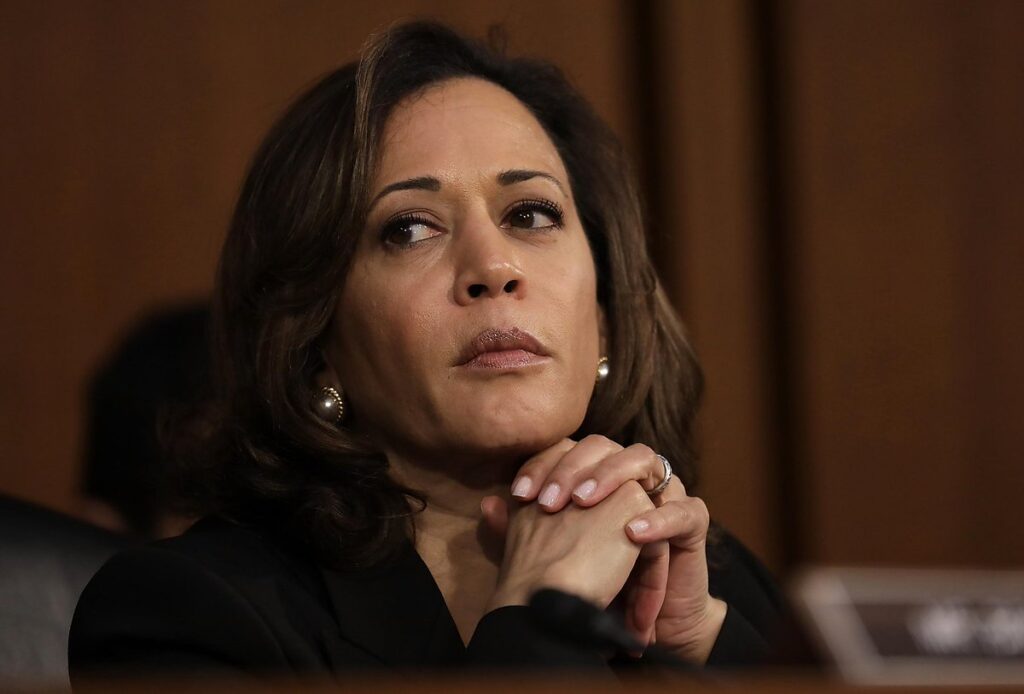CNN’s Harry Enten raised concerns on Friday about a particularly troubling “bad sign” for Kamala Harris’s electoral prospects, stating that a victory for her in this year’s presidential election would be “historically unprecedented.” In a segment with anchor John Berman, Enten was asked about the polls reflecting whether Americans believe the country is on the right track or the wrong track.
“Yeah, if we look at whether voters believe we’re on the right track or the wrong track, I think that this sort of gets at a problem for Kamala Harris’s campaign. Just 28% of Americans think the U.S. is on the right track,” replied Enten. “And I want you to put that into perspective, right? When does the average when the incumbent party loses the election, look at that: It’s just 25%. That looks a heck of a lot like that 28%, right, that currently think the country is on the right track.”
“When the White House party wins, i.e. Kamala Harris’s party, the Democrats, 42% on average think that the country is on the right track. This 25% looks a lot more like this 28%. It doesn’t look anything like this 42%,” he continued. “This to me is a bad sign for Kamala Harris’s campaign. The bottom line is it looks a lot more like a loser than it does like a winner when it comes to the country being on the right track.”
Berman then asked if an incumbent party has won or can win with so few Americans thinking the country is headed the right way, to which Enten responded: “Yeah, so if we look historically speaking, right, and we say, okay, say the U.S. is on the right track, the incumbent party when they win. Today, again, it’s just 28%. Look throughout history, right. — ’96, ’88, ’04, ’12, ’84 — in all of these instances, in all these instances, far more than 28% thought that the country was on the right track.”
He conclude: “Thirty-nine was the lowest back in 1996. We got upwards of 47% in ’84, of course that was a blowout, right, for Ronald Reagan. So there is no historical precedent for the White House party winning another term in the White House when the country, when just 28% of the country thinks that we’re on the right track. John, simply put, it would be historically unprecedented.”
WATCH:
The president’s party has never (at least back to 1980) won another term in the White House with so few Americans saying the U.S. is on the right track (28%, today).
The average when the prez party loses (25%) is far closer to today’s number, though there is a bit of a twist. pic.twitter.com/hZtWRMW9mn
— (((Harry Enten))) (@ForecasterEnten) October 4, 2024
Last month, Enten said that, according to the network’s polling data, Harris was not only losing support from minority voters but was also polling behind President Joe Biden with black and Hispanic voters in 2020.
“Yes, let’s start with black voters. And, you know, big part of the Democratic coalition. This is the Democrat versus Trump margin. Look, Kamala Harris is up by 66 points among black voters. That is up from where Joe Biden was earlier this year, right, when he got out of the race, at 51. He was up by 51 points over Donald Trump,” Enten said.
“But this 66-point lead is way lower than that 80-point lead that Joe Biden had over Donald Trump at this point in the 2020 cycle. It’s 14 points lower. So, the bottom line is, yes, Joe Biden was really struggling with black voters. Harris has climbed up a little bit. But she’s not anywhere near the level that Joe Biden was at this point just four years ago,” he added. Bolduan then asked: “And then what about Hispanic voters?”
“All right, so this is the same trend idea, right? All right, what you see here again, Democrat versus Donald Trump. Yes, Kamala Harris is ahead by 15 points. That’s certainly significantly better than Joe Biden was doing just a few months ago when it was a seven- point advantage. But again, look at this, this 15-point advantage that Harris has is significantly less than Joe Biden was doing at this point four years ago. It’s nearly – it’s only about half that number,” he explained.



